September 2020 national eResearch newsletter
Welcome to the September 2020 National eResearch Newsletter
Message from AeRO
Only a few days remain for the Early Bird tickets to eResearch Australasia Online. We had a great response to the call for participation, and reviews are now complete so I look forward to announcing the program very soon. This has been a difficult year for many but everyone should have the opportunity to connect with the rest of the eResearch community so we will continue to offer complimentary registration to those who require it. I hope to see you all online in a month!
Sam Moskwa, AeRO CEO
 |
eResearch Australasia 2020 Online: EarlyBird closes 18-Sep
The eResearch Australasia 2020 conference will be delivered in an exciting online format! eResearch Online will offer delegates the opportunity to engage, connect, and share their ideas and exemplars concerning new eResearch capabilities, and how information and communication technologies help researchers to collaborate, collect, manage, share, process, analyse, store, find, understand and re-use data and information. Registrations are now open – save $100 with earlybird registration via https://conference.eresearch.edu.au/2020-registration/. |
 |
Pawsey Hour AMA: 21-Sep
Pawsey Supercomputing Centre invites you to join us for Pawsey Hour (Ask. Me. Anything.), our new way of reaching out to the research community. Pawsey Hour AMA is an opportunity to join in a discussion with Pawsey expert staff and an online community of peers:
Register here: https://pawsey.org.au/event/pawsey-hour-ask-me-anything-21/. |
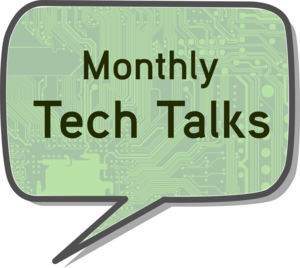 |
Tech Talk 2020: 8-Oct
Tech Talk reboots in 2020, with a new homepage, a new Programme Committee, and a new focus on eResearch Technical Specialists. The talks will start in October and expect to run as webinars every couple of months. Webinar: 8 Oct 2020, 1.00pm (AEDT) – New Infrastructure and Services for Nectar Research cloud in 2020/21. Sign up to the Tech Talk 2020/21 series and get invites to the Zoom webinars: http://tiny.cc/techtalk_2020. |
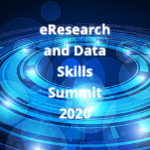 |
Australian eResearch and Data Skills Summit: 26-Oct
ARDC’s virtual Australian eResearch and Data Skills Summit will take place form 26 – 30 Oct Submissions closed on 11 September, but a draft program is now available. See https://ardc.edu.au/events/ardc-australian-eresearch-and-data-skills-summit-2020/. |
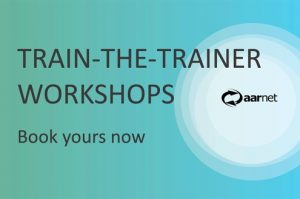 |
AARNet Train-the-Trainer Workshops
AARNet is pleased to announce that bookings are open for our Train-The-Trainer Workshops. As the network provider for Australia’s universities and research institutions, AARNet’s aim is to support all researchers to get the most of the network and the technologies available to support their work. Training is one of the ways we do this. Our training is focused on workshops that demonstrate how to use the services we provide, such as CloudStor and SWAN, and improve the sector’s understanding of the capabilities of networks and data movement. Find out more or make a booking: https://news.aarnet.edu.au/aarnet-train-the-trainer-workshops/. |
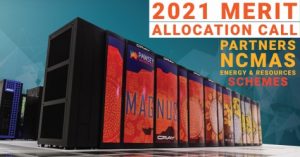 |
Pawsey: 2021 Applications for Magnus Now Open
Calls are open for supercomputing time on Magnus at the Pawsey Supercomputing Centre in 2021. If you are interested in using supercomputing resources for your meritorious research between January and December in 2021, please consider applying. The 2021 calls are for the following schemes:
For more information about the call for allocations, visit this page: https://pawsey.org.au/calls-for-supercomputing-time-in-magnus-are-now-open/. |
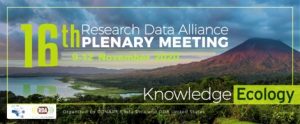 |
RDA Virtual Plenary: 9-Nov
The Research Data Alliance’s Virtual Plenary #16, themed “Knowledge Ecology”, will take place from 9 to 13 November, and will include the normal plenary elements, but be held over an entire week to accommodate multiple time zones. Poster submissions are still open, closing 11-Oct. See https://www.rd-alliance.org/plenaries/rda-16th-plenary-meeting-costa-rica-virtual. |
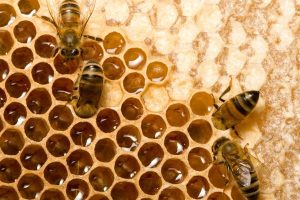 |
Predicting Honey Harvests Using Remote Sensing and Weather Data
West Australian researchers and industry partners taste sweet success as a new model predicts good marri honey harvest years with 90% accuracy, using remote sensing and weather data. “Time is Honey” – read about the approach and the opportunities it presents to other regions, species, and in the assessment of ecosystem services. |
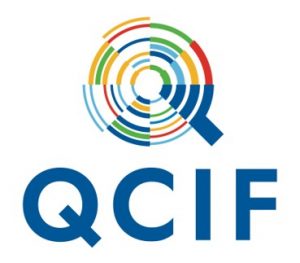 |
Digital Skills Training from QCIF
QCIF’s Skills Development group runs a wide range of hands-on digital skills workshops, including introductory programming and statistical analysis training. Our regular scheduled classes are open to anyone in Australia, and we can provide any of our training, including customised options, as dedicated contract workshops. Having led more than 50 workshops since switching to online delivery earlier this year, QCIF has a wealth of experience in running effective and engaging training online. QCIF utilises an online platform that can provide training to attendees from anywhere in Australia, including those in regional or dispersed organisations. See https://www.qcif.edu.au/training/training-courses/ or contact mark.crowe@qcif.edu.au. |
 |
EOI for Pawsey Merit Allocation Committee
The Pawsey Partner and Energy & Resource (E&R) merit allocation committees are responsible for allocating shares of the Magnus supercomputer to meritorious research projects based on a consideration of the project’s requirements, merit of the project and overall resources available. Pawsey is seeking additional committee members to support the current committee for a term of one to two years. Expressions of interest are welcomed from appropriately qualified researchers in all fields of computationally- and data-intensive research including astronomy, chemistry/materials, computational fluid dynamics, engineering, environment/climate/earth system science, genomics, geosciences, molecular dynamics, and physics. More information and to apply: https://jobs.csiro.au/job/Perth%2C-WA-Software-Research-Engineer-%28Scientific-Visualisation%29/630806200/?locale=en_GB. |
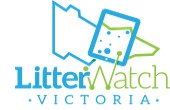 |
LitterWatch Victoria Project
A successful collaboration between Federation University’s Centre for eResearch and Digital Innovation and the Department of Environment, Land, Water and Planning has culminated in the launch of LitterWatch Victoria. LitterWatch is an online portal that collates public, state-wide datasets about litter in Victoria that can be easily visualised and readily used for reporting, planning, policy-making and engagement. A feature of the project has been the development of a standardised litter monitoring database and online spatial information system, that includes the federation of community and agency litter monitoring data. For more information visit: www.litterwatchvictoria.org.au. |
 |
Using Pawsey’s Nimbus Cloud
Join our online training on how to use the Nimbus Cloud (2 part series), the Pawsey Supercomputing Centre’s new high-throughput computing infrastructure (https://pawsey.org.au/new-pawsey-nimbus-cloud-infrastructure-available-for-australian-researchers/):
Register for part 1 (https://pawsey.org.au/event/using-nimbus-research-cloud-part-1-2/) and for part 2 (https://pawsey.org.au/event/using-nimbus-research-cloud-part-2-2/). |
 |
Pawsey Internships
Pawsey Supercomputing Centre is pleased to announce that the Pawsey Summer internship Call for students and projects are now open! Interns will be partnered with competitively awarded projects. They will work alongside national and/or international supervisors and collaborators. They will also learn from Pawsey Supercomputing Centre staff about good practices of using Pawsey resources, good practices for poster creation/presentation, techniques for business communication, and more. Through training, interns will learn more about supercomputing, data management and scientific visualization. They’ll network with other interns and set up a Community of Practice. Submit a project: https://pawsey.org.au/pawsey-summer-internship-program-the-call-for-projects-is-now-open/. Apply for an internship: https://pawsey.org.au/pawsey-supercomputing-centre-summer-internships-call-for-students-is-now-open/. |
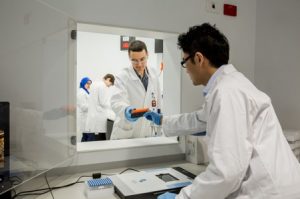 |
Faster Access to Data Helps Researchers at the Children’s Medical Research Institute
Almost every person has a story of cancer affecting friends or family. Cancer is devastating and ubiquitous, and treating it remains one of the greatest challenges of modern medicine. One possible avenue for finding better cancer treatments is to study cellular proteins to learn how they interact with different cancer treatments. ProCan, one of many research projects run by the Children’s Medical Research Institute (CMRI), aims to study these cellular proteins. |
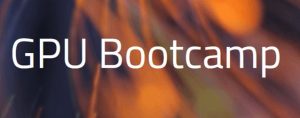 |
Wrapping up the First GPU Bootcamp
NCI recently partnered with regional colleagues at the Pawsey Supercomputing Centre and New Zealand eScience Infrastructure, and our industry partners NVIDIA, to bring beginner and intermediate users a GPU Bootcamp. A three-day online, interactive course offering an introduction to methods of code parallelisation, a mini coding project, and debugging techniques, the GPU Bootcamp was a popular and useful entry into some of Gadi’s most exciting new technology. Find out more about the Bootcamp here: http://bit.ly/GPUbootcamp1. |
 |
ARDC Communities of Practice (SIGs)
ARDC coordinates a number of Special Interest Groups, which have regular (virtual) meetings; these include the following:
See the full list and links at: https://ardc.edu.au/resources/communities-of-practice/. |
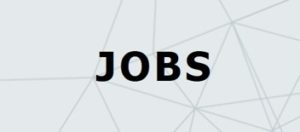 |
eResearch Jobs
AeRO provides details of the latest eResearch job opportunities in the sector. Jobs are posted immediately to https://twitter.com/AeRO_eResearch, and the website at http://aero.edu.au/jobs/ is also updated.
This is a free service for the whole eResearch community – to advertise a position, simply email loretta@aero.edu.au.
|
Contributions
This newsletter is based on contributions provided by members of the eResearch community, and draws on news articles and newsletters published across the sector. The Newsletter is published around the 16th of each month.
Please send any contributions (max. 100 words, plus a link and image) or pointers to any other relevant articles or newsletters to editor@aero.edu.au
Archives of these Newsletters are held at http://aero.edu.au/newsletters/.
Click HERE to add yourself to the eResearch Mailing List.
Thanks,
—AeRO Newsletter Editor

